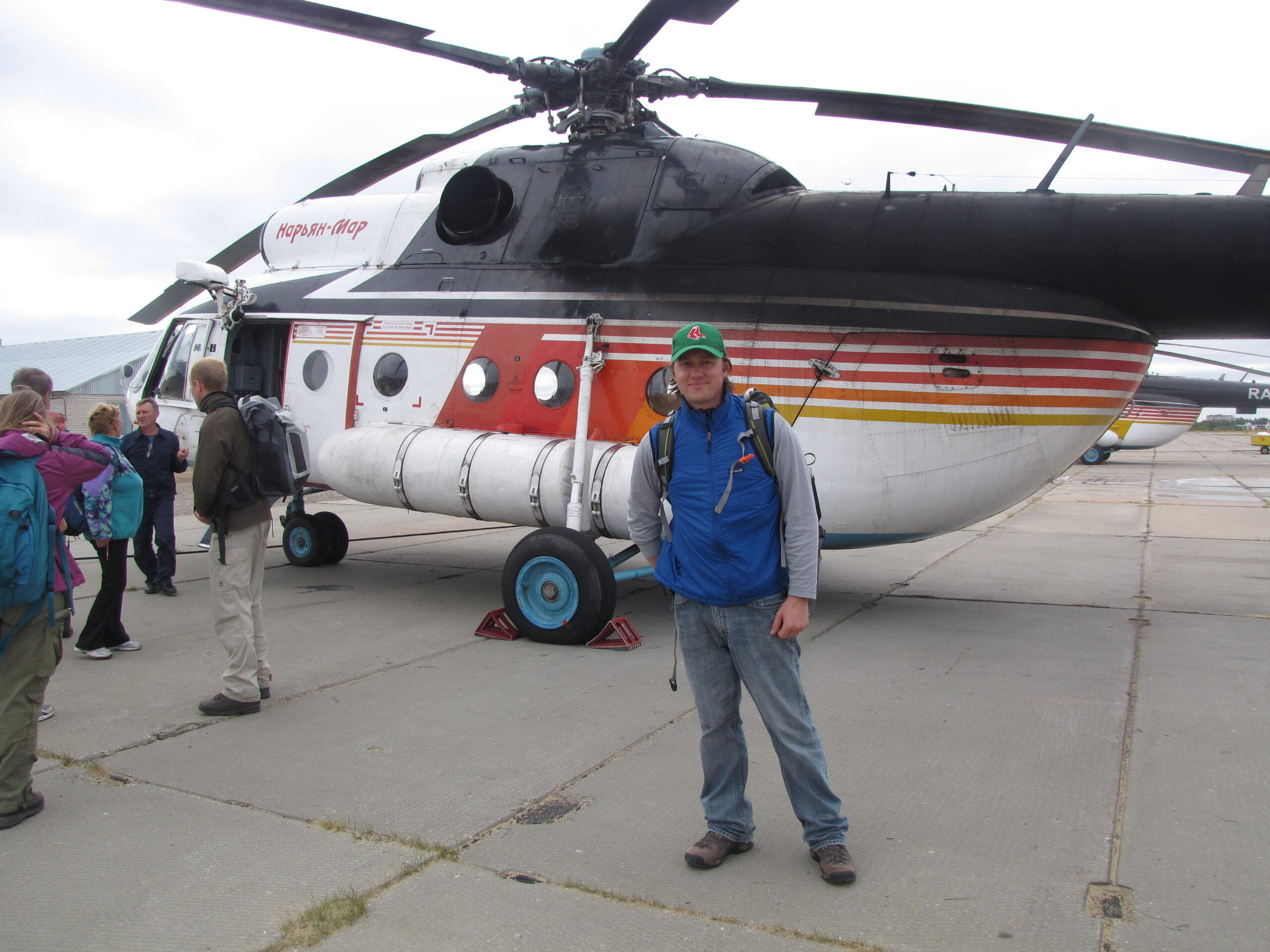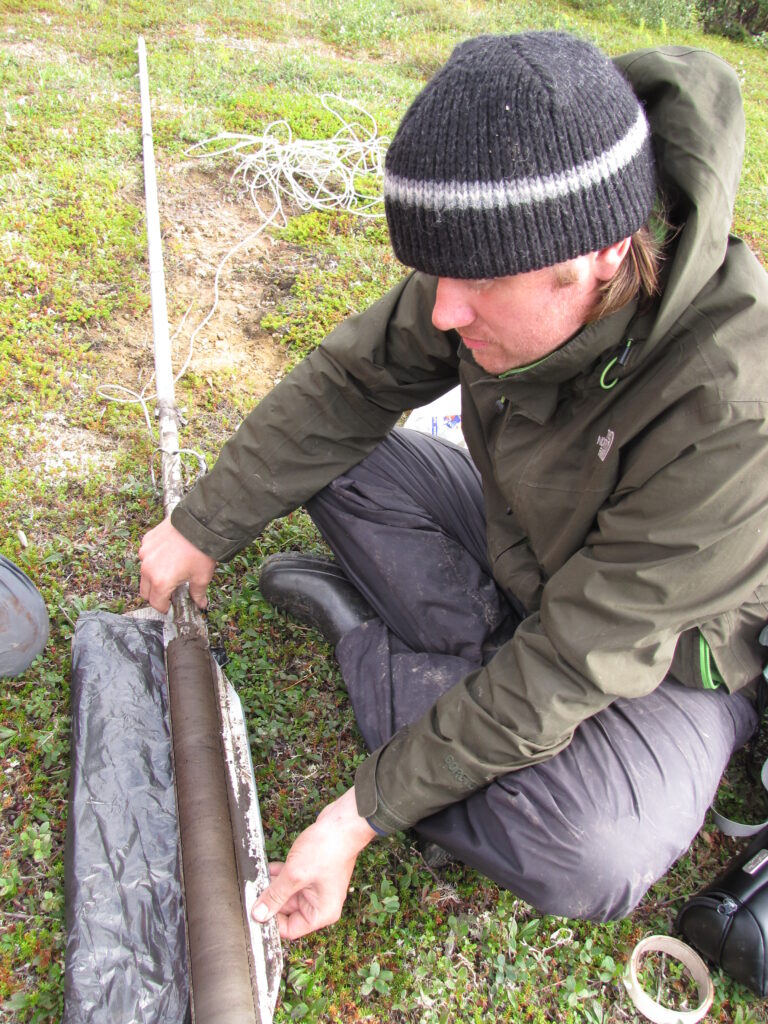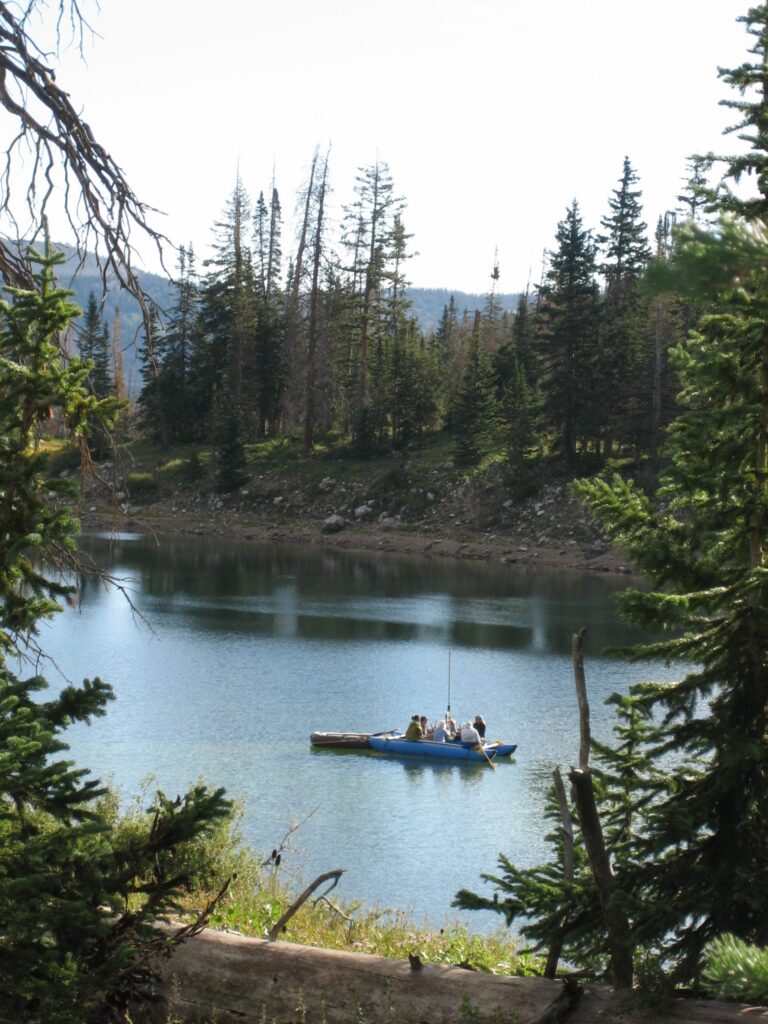
The Office of the Vice President for Research is spotlighting University of Utah researchers who look for new and innovative ways to bring solutions to the issues of today and tomorrow.

Dr. Jesse Morris, Director of Research Education and Research Associate Professor with the Geography Department at the University of Utah, focuses his research on looking at forest conditions, specifically conifers. Dr. Morris’ research on bark beetles and social-ecological systems has been published in several journals such as Frontiers in Ecology and the Environment, and he has been interviewed by media outlets including National Public Radio and Utah Adventure Jour
nal, among others. He worked as a postdoc at the University of Helsinki and has led fieldwork in Russia, Tasmania, and throughout the western United States.
“I’ve got a soft spot for conifers and so I’ve mostly been looking at agents that kill trees,” said Morris. “So things like wildfires and insects like bark beetles, and then how the forest conditions change from the pre-disturbed landscape to the post-disturbed landscape.”
What got Morris into the study of forest conditions? He said he’s always been fascinated by the Earth.
“When I was a kid, my parents were seasonal firefighters with the US Forest Service, so I kind of grew up around forests,” Morris said. “At a very young age, I was aware of a fire in the West. And then throughout my undergrad experience at a big state school, I discovered biogeography, which is the study of where plants and animals have lived through time. And it just changed my whole perspective and what I wanted to do with my career.”
Keeping up to date with the evolution in any research field while focusing on one’s own work can be tough to juggle. For Morris, Twitter and listening to what his students are discussing about their research are ways he stays up-to-date on the latest publications.
“I’ve moved into this position where I learn a lot from the students that I interact with because they’re thinking about research in just completely different ways, just because of the level of technology that’s available now,” he said. “The transmission of information is different now and a lot of them are right on the cutting edge. And you learn a lot through formal and informal conversations.”

One of Dr. Morris’ research studies he’s working on is looking at sediment cores at Fish Lake, which is located in south central Utah. The sediment cores are at least 60,000 years old, Morris said.
“One of the really fascinating opportunities there is that that the environmental record goes through the last glacial cycle and into the previous interglacial. We’re going to have an unparalleled record of what the environment has been like in Utah for past the previous Ice Age.”
For Morris, the most rewarding part of his research has been the way that he’s been challenged to take his very specific interest in trees and realize the ways that trees are important to others or to society in a way that doesn’t necessarily reflect just the inherent value of a tree.
“A personal growth that I experienced recently is realizing that there are a lot of people that on the surface I may not have a lot in common with but there are values we share when it comes to Utah’s landscapes,” he said. “People care about the same things that I do, it’s just from a different angle.”
Morris advises that all researchers be open to conversations with others outside their field and academia in general to find ways to understand other perspectives which can help to view your own work through a new lens.
“Some of the most rewarding collaborations that I have had have been with people at the other end of the spectrum, like social scientists,” he said. “Push your boundaries, listen to what other people are saying. And if you don’t understand it, somewhere in there, there’s a common vocabulary. And just as being humans like we are, the human condition, we get comfortable. But make yourself uncomfortable.”
To learn more about Dr. Morris and his research work, click here.

